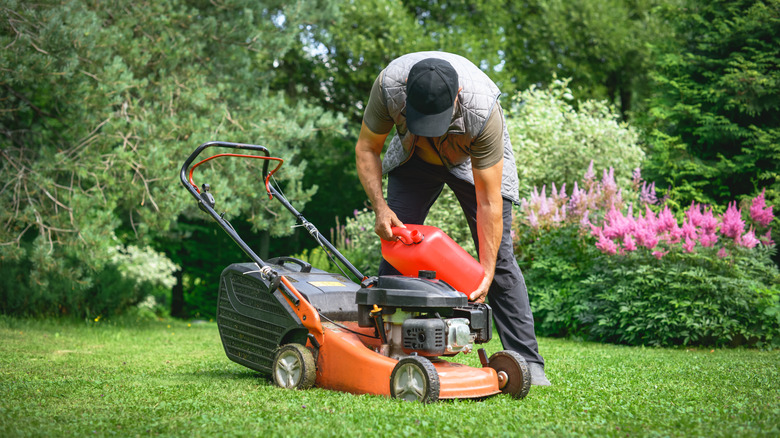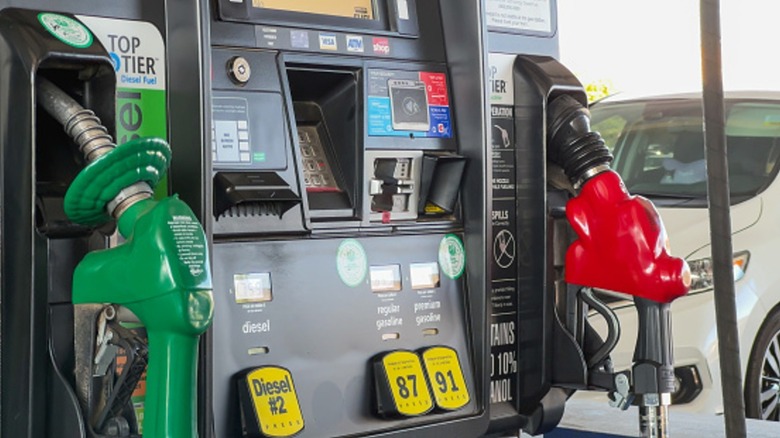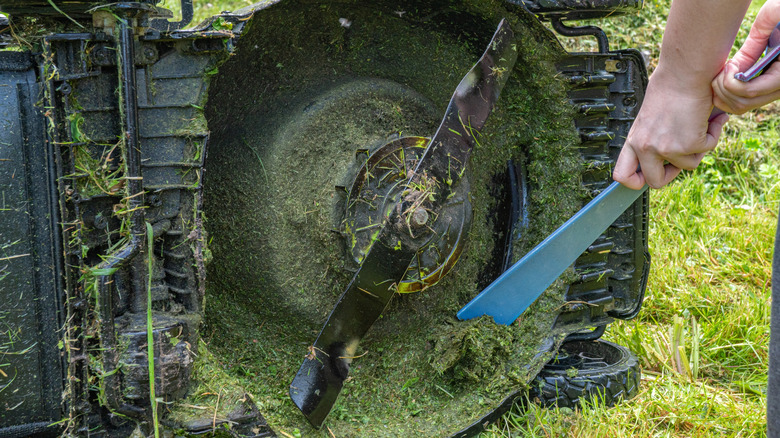Can You Use Premium Gas In A Lawn Mower? (And Should You?)
A residential grade gas lawn mower is an investment that can range in price from around $250, for a basic 21-inch walk-behind push model, up to just under $5,700 for a John Deere 60-inch zero turn. Regardless of your price point, keeping your outdoor power equipment in good running shape can help lengthen its service life. Those familiar with what happens if you use old gas in a lawn mower, understand the impact aging fuel can have on a small engine. But what about fuel grade?
While you can use premium gasoline, it's not typically advised for lawn mowers because it offers no advantages in terms of output or enhanced engine lifespan. Not only will premium cost you more at the pump, but in most cases, it goes over and beyond what lawn mower manufacturers recommend. For instance, Toro advises you use unleaded gasoline with a minimum octane rating of 87 on its Recycler 21-inch self-propelled walk-behind mower. Cub Cadet's Ultima ZT1 50-inch zero turn recommends the same.
How much more will you spend on premium over regular?
According to AAA, the current U.S. average for regular is $3.17 per gallon and for premium, it's $4.01. Looking at the Cub Cadet Ultima ZT1 50-inch zero turn, for example, it features a 3.5-gallon fuel tank. For simplicity's sake, suppose you mow once a week, using a full tank each time and your cutting season lasts seven months or around 30 weeks. Using the U.S. average for regular, you would spend around $332 for fuel, whereas with premium, it would cost you an additional $89 or approximately $421.
Of course, these figures can vary significantly depending on where in the country you reside. If you live in one of the states with the highest gas prices, like California, it'll be even more expensive to run regular grade fuel, let alone premium. For example, in San Diego County recently, prices for regular (using a credit or debit card) were around $4.25, and premium was listed for $4.65. Using the same Cub Cadet example and figures above, you'd spend approximately $446 for regular, and $488 for premium fuel. On the opposite side of the spectrum, there is one region in America that tends to have the cheapest gas prices.
What can you do to keep your lawn mower running well for many years?
Unfortunately, there isn't some secret method or special trick that'll have your mower outperforming and outlasting your neighbors. Instead, it comes down to preventative and routine maintenance, which help prevent your lawn equipment from working too hard. Obvious tasks, like regularly changing the oil, can help ensure the engine doesn't overheat, and moving parts don't experience excess friction. Thankfully, there's only one kind of oil that most lawn mowers use.
However, there are other upkeep efforts you may not have considered, that could extend the lifetime of your machine. For instance, you should take the time to clean underneath your mowers deck frequently. Grass clippings can build up around the blades, not only affecting the quality of the cut, but also adding strain on the engine, as the blades must work harder to spin.
Another component to keep an eye on is the air filter. Eventually, without a fresh replacement, the filter will become clogged with dirt and debris. When this happens, your mower's engine will start to struggle to breathe, and in turn labor much more than normal during operation. Essentially, don't make your mower work harder than it has to, and you'll have the best chance for a lengthy service life.


